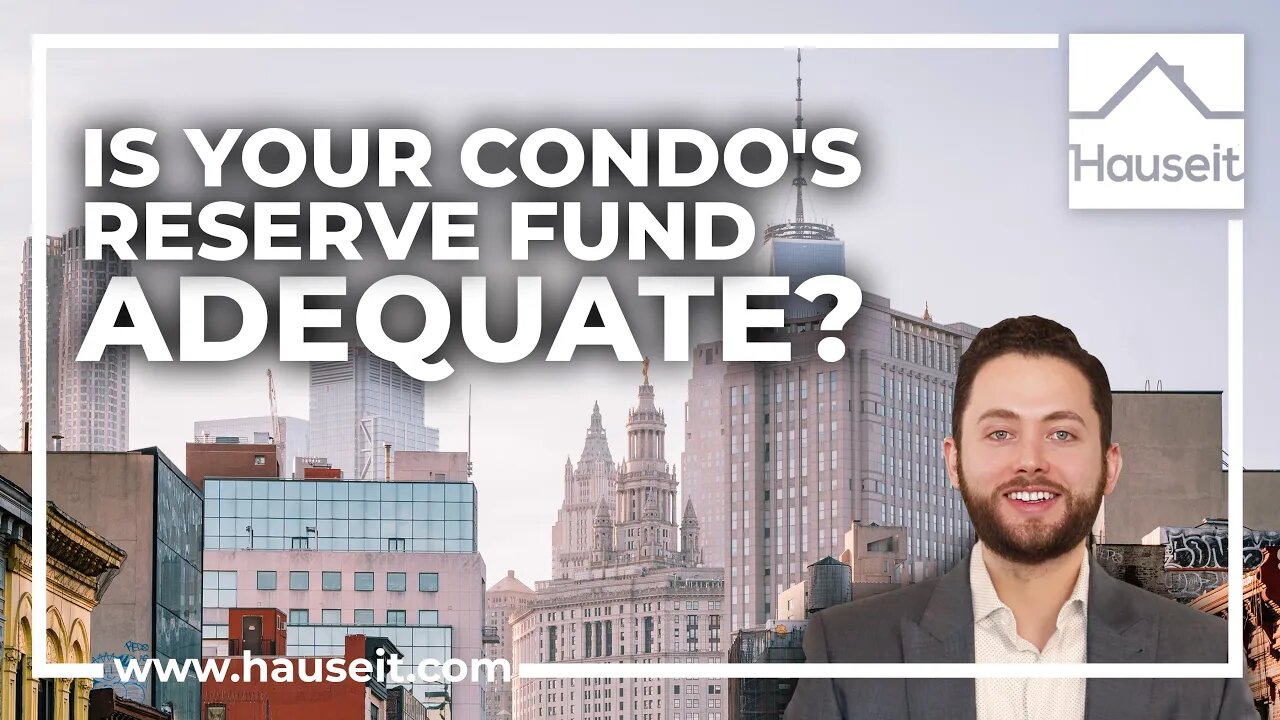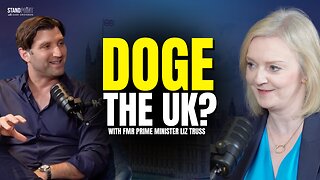Premium Only Content

Is Your Condo Building’s Reserve Fund Adequate?
Is your condo building’s reserve fund adequate? We’ll discuss this topic in the following video. Visit https://hauseit.com to learn how to save money if you’re buying or selling real estate in New York. Im Nick at Hauseit, based here in New York City. So let’s get started!
Save 6% When Selling in NYC: https://www.hauseit.com/agent-assisted-fsbo/
If you’re thinking about buying a condo or co-op, it’s important to review the building’s financials before you sign a purchase contract. In New York, your attorney will typically review the condo’s financial statements as part of the overall buyer due diligence process which happens before you sign the contract.
However, it’s also possible to request the financials and perform a basic review prior to submitting an offer.
We do have a separate, in-depth video which talks about how to review condo building financials: https://www.youtube.com/watch?v=S7W3n3RYA7c
But in this video, we’re going to focus on condo reserves specifically.
So first and foremost, let’s answer this question: what are condo reserves?
Well, a condo’s reserve fund is basically a rainy day fund for the condo which it can use to pay for large capital improvement projects, or to cover unanticipated expenses. In other words, condo reserves represent the amount of available cash or cash equivalents that a building has in their coffers.
A condo building’s reserve fund appears on the Balance Sheet. Larger condo buildings usually differentiate between reserve funds and cash, while smaller buildings typically just show cash. But ultimately, cash or cash equivalents identified as ‘reserve funds’ or simply as ‘cash’ perform the same function.
Let’s answer another question: who owns a condo’s reserves?
Well, the technical answer is that the Condominium Association owns the condo reserve fund. Neither building management nor individual unit owners have any direct claim to these funds.
However, individual units owners indirectly own this money by way of their ownership percentages in the condo building as a whole.
Let’s say you’re buying a unit in a condo building with 10 apartments. This condo building has been very thrifty with their finances, and as a result, they have $200,000 in the bank.
If you buy this apartment, you’re purchasing roughly 10% of the condo building. Therefore, you indirectly own reserves of 10% x $200,000, or $20,000.
That being said, reserve fund money cannot be accessed or withdrawn on demand by individual unit owners. However, the size of the reserve fund still matters. This is because the reserve fund is a buffer between building expenses and possible assessments which you may be asked to pay as a unit owner.
An assessment is an additional, temporary charge levied against unit owners to pay for building capital projects or other expenses which are not provisioned for in a building’s regular operating budget.
Let’s say the condo building needs to spend $25,000 to upgrade the fire sprinkler system, and they have no reserves. This would all but guarantee that the condo would levy an immediate assessment on unit owners.
So if you bought this condo, you’d have to pay your regular common charges, and on top of that, for a few months or perhaps a year, you’d have to pay a separate, additional assessment charge to pay for the sprinkler system upgrade.
Going to back to our previous example, let’s say the condo building has $200,000 in reserves in the bank. If this were the case, the building can easily pay for the $25,000 sprinkler upgrade, and it won’t have to levy any assessments on unit owners.
So, on to the next question: how much in reserves should a condo building have?
Well, in an ideal world, a condo should have at least 6 months of operating expenses in the form of cash reserves.
Here’s how we do the math:
First, let’s take a look at the income statement and figure out the total annual expenditures. Let’s say the building spends $100,000 annually. Now, let’s divide that by 12. So this building spends roughly $8,000 a month.
Now let’s go to the balance sheet and find the cash balance. In this case, it’s roughly $26,000.
Dividing the $26,000 in cash by the $8,000 monthly operating expenses tells us that this building has just over 3 months of operating expenses in their reserve fund.
It’s important to keep in mind that it’s not necessarily an immediate red flag if a building doesn’t have a large reserve balance. Some condos simply like to keep common charges as low as possible and assess whenever they need to pay for something.
If you’re looking to buy or sell, check out https://hauseit.com to learn how to save money. I’m Nick at Hauseit, and we’ll see you on the next video!
Save 6% When Selling in NYC: https://www.hauseit.com/agent-assisted-fsbo/
.
.
Hauseit LLC, Licensed Real Estate Broker
Tel: (888) 494-8258 | https://www.hauseit.com
_
#hauseit #hauseitnyc
-
 1:56:29
1:56:29
The Quartering
4 hours agoAirplane FLIPS and CRASHES, Sean Duffy Slams Pete Buttigieg, & What Happened with Patriarchy Hannah
55.9K17 -
 37:08
37:08
Standpoint with Gabe Groisman
21 hours agoDOGE The UK?! With Liz Truss
9.38K6 -
 56:39
56:39
SLS - Street League Skateboarding
6 days agoHIGHEST SCORING KNOCKOUT ROUND OF ALL TIME! Felipe Gustavo, Dashawn Jordan, Filipe Mota & more...
12.2K1 -
 14:26
14:26
Breaking Points
1 day agoWOKE VS BASED?: Saagar And Ryan Play A Game
10.4K5 -
 5:29:58
5:29:58
SoundBoardLord
6 hours agoThe Red Dead Journey Continues!!!
13.5K -
 1:17:31
1:17:31
The Officer Tatum
2 hours agoLIVE: Delta Airlines CRASH BLAMED On Trump, Ashley St. Claire Had Elon's BABY? + More | Ep 63
20.1K27 -
 1:38:08
1:38:08
vivafrei
5 hours agoAOC goes Full Criminal Lover? Mehdi Hasan Goes Full Terrorist? Another Plane Crash & MORE! Viva Frei
56.1K30 -
 1:52:19
1:52:19
Russell Brand
4 hours agoLIVE FROM MAR A LAGO: US, Russia & China to Negotiate While UK Ramps Up in Ukraine – SF539
125K41 -
 1:59:46
1:59:46
The Charlie Kirk Show
4 hours agoThe Biggest Fraud in History? + Russian Peace Talks + Unhappy Boomers? | Gingrich, Rasmussen | 2.18
112K39 -
 58:11
58:11
The Dan Bongino Show
7 hours agoThis Is What Winning In Politics Looks Like (Ep. 2425) - 02/18/2025
745K1.28K